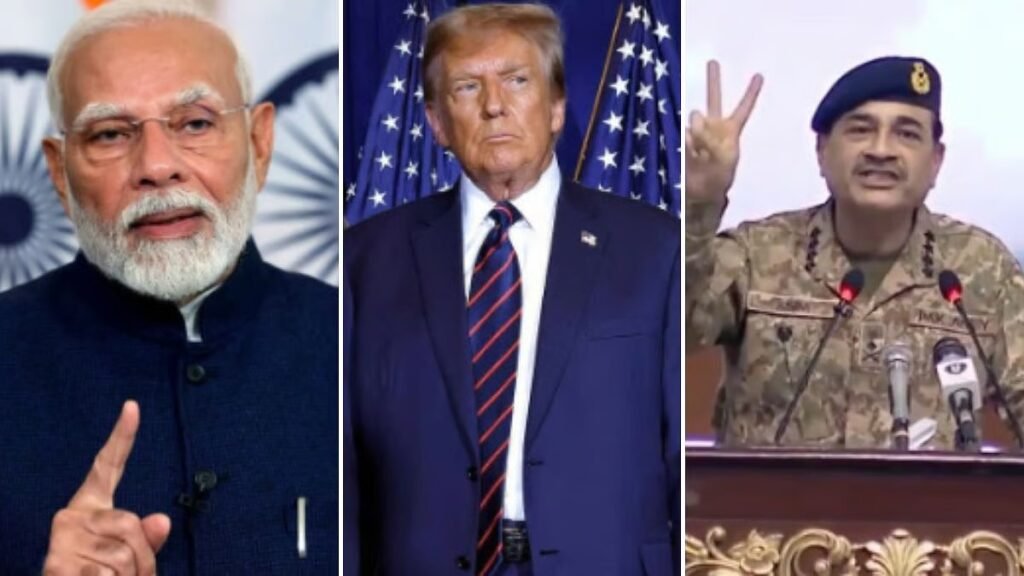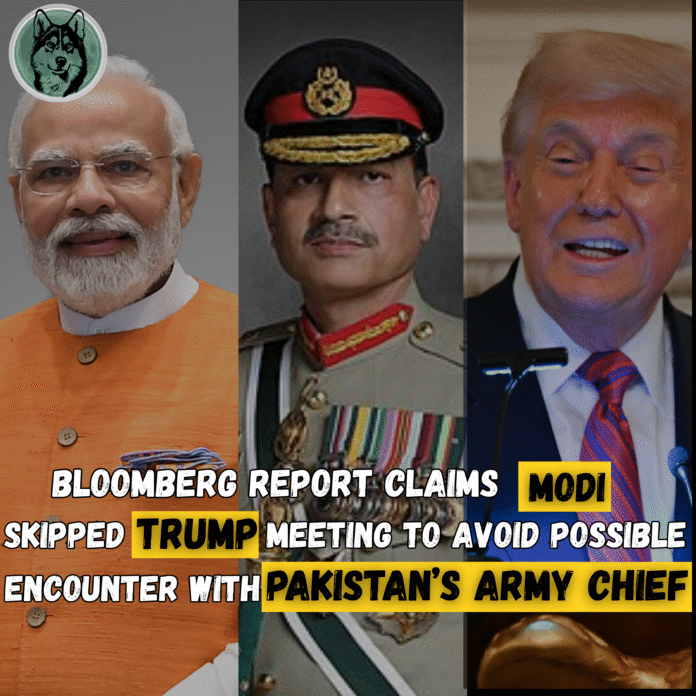Report reveals Indian PM’s concerns over a potential White House meeting with Field Marshal Asim Munir amid escalating diplomatic tensions between Washington and New Delhi.
New Delhi/Washington — Indian Prime Minister Narendra Modi declined a planned June meeting with U.S. President Donald Trump, reportedly due to fears that it could lead to an unplanned encounter with Pakistan’s Chief of Army Staff, Field Marshal Asim Munir. According to senior officials in New Delhi quoted in a Bloomberg report, Modi was concerned that Trump might facilitate or allow such a meeting if both leaders happened to be at the White House at the same time.
The revelation comes against the backdrop of worsening diplomatic ties between the United States and India, a relationship that has long been touted as one of the most strategically important in the Indo-Pacific region.
From Cooperation to Confrontation
Earlier this year, Modi visited Washington in February, where he and Trump announced ambitious goals to double bilateral trade to $500 billion by 2030 and deepen cooperation in defense, technology, and clean energy. At the time, the meeting was hailed as a success, reinforcing the perception of a growing partnership between the two democracies.
However, by May, the mood had shifted dramatically. A short but intense flare-up between India and Pakistan along the Line of Control led to a fragile ceasefire. While the agreement was negotiated directly between New Delhi and Islamabad, Trump publicly claimed credit for brokering the peace deal, even suggesting that his personal intervention had “averted a nuclear war” in South Asia. This narrative was strongly rejected by Indian diplomats, who stressed that India had never sought U.S. mediation and would never accept it in matters concerning Pakistan.
The June 17 Phone Call
The tension between the two leaders reached a peak on June 17, when Modi and Trump spoke over the phone. The call, described as tense and direct, took place after Trump left the G7 summit in Canada early, which prevented him from meeting Modi in person. During the conversation, Modi reportedly told Trump that India would not tolerate any suggestion of third-party involvement in its security matters.
It was against this backdrop of mistrust that the possibility arose of Modi encountering Pakistan’s Army Chief at the White House. New Delhi officials feared that such a meeting — even if informal — could be used by Pakistan to signal a softening of India’s stance or to suggest a shift in policy, something Modi’s government wanted to avoid entirely. This concern, combined with the already strained diplomatic climate, led to the decision to skip the trip altogether.
Trade and Tariff Clash
The political disagreements soon bled into trade relations. In early August, Trump announced a sweeping 50% tariff on Indian exports to the United States, a move that stunned Indian policymakers. The White House justified the measure by citing India’s continued imports of Russian oil, which the U.S. argued indirectly supported Russia’s war efforts in Ukraine.
The tariff decision was accompanied by unusually harsh rhetoric from Trump, who described India’s economy as “dead” and accused the country of maintaining “obnoxious” trade barriers. He also criticized India for what he called a lack of empathy toward Ukrainian civilians caught in the conflict.
Strategic Consequences
The fallout from these developments has been swift. India has paused planned purchases of U.S. military equipment, putting key defense deals on hold. Simultaneously, New Delhi has deepened its engagement with Moscow, with Modi reaffirming India’s strategic partnership with Russia in public statements following the tariff announcement.
Analysts say the rapid deterioration in U.S.-India relations marks one of the most significant setbacks in decades. The relationship, which had been steadily improving through successive U.S. administrations, now faces uncertainty as trade disputes, geopolitical alignments, and personal mistrust between leaders reshape the diplomatic landscape.
Looking Ahead
Since their June 17 phone call, Modi and Trump have not spoken directly. With trade negotiations frozen, defense cooperation in limbo, and public criticism exchanged on both sides, the future of U.S.-India relations hangs in the balance. The decision to avoid a meeting with Trump — prompted by the fear of crossing paths with Pakistan’s Army Chief — now appears as a symbol of the deeper fractures between the two nations.
For now, both capitals remain locked in a diplomatic standoff, with neither side showing signs of backing down.























